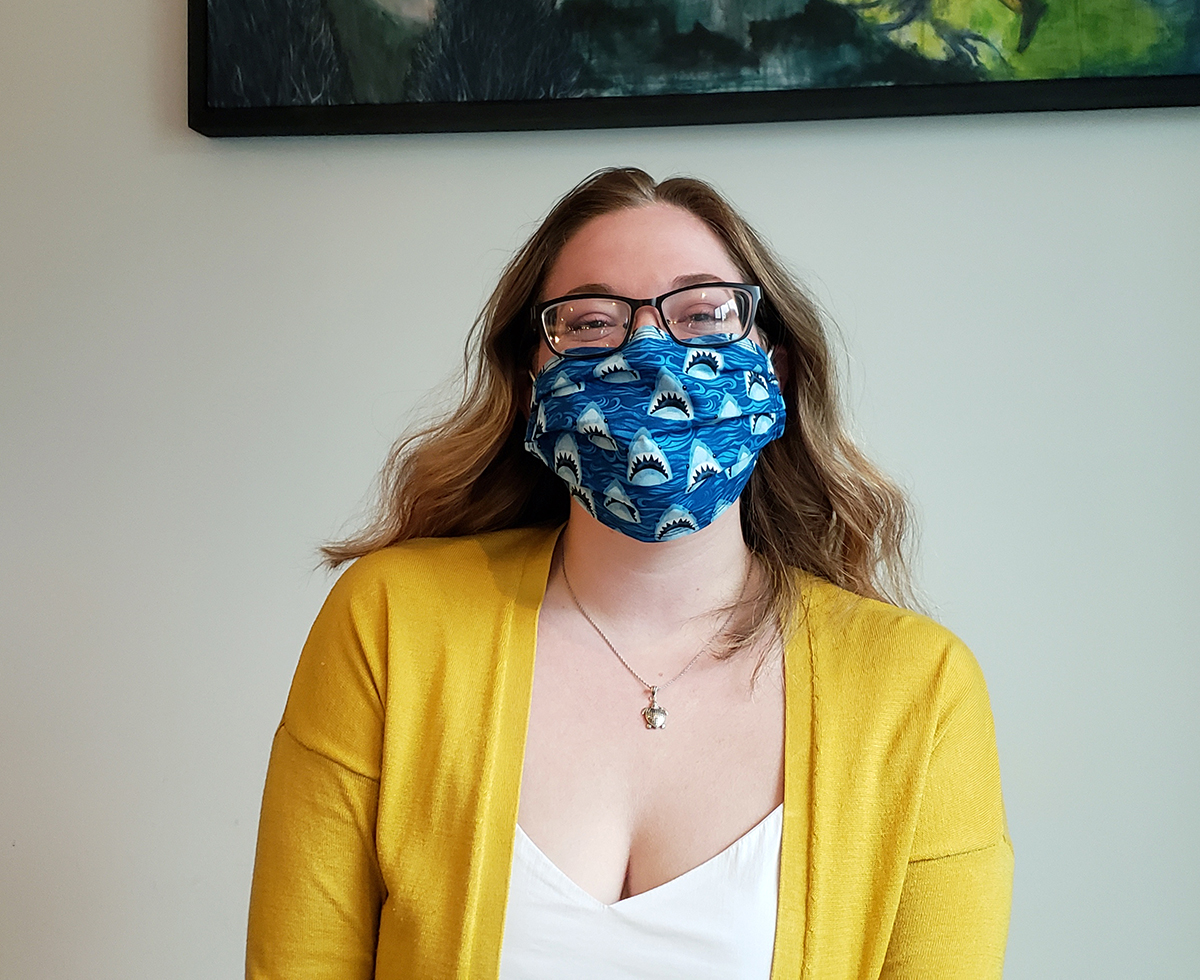Recent Headlines

Mikayla Higgins demonstrates one of her masks
Sew Talented: ESF Student Mask-Maker Has You Covered
It's difficult to tell what Mikayla Higgins is more excited to talk about - the new fabrics she has for making masks or sharks.
Higgins, senior conservation biology and marine science major, is part of the legion of mask makers helping reduce the spread of the coronavirus by making masks.
Higgins is following her mother's lead making masks. "She works, and does alterations on the side," said Higgins, "so when the virus arrived she started making masks." Higgins' sister and father also pitch in and the Middletown, New York family has made and donated more than 4,000 masks.
However, living in Syracuse, Higgins wasn't able to join the "family business," so she started her own mask-making service here. As a college student, Higgins doesn't have the financial resources to donate her masks and charges a nominal fee for each bespoke mask.
Higgins puts considerable effort into finding fabrics that will speak to the ESF community.
"When I found a mushroom material, I was like, 'Could I not have a more ESF fabric?' Everyone loves it. Then I found snails and I thought, 'Oh my God, these snails are so cute' and because I took invert zoology, I know everyone loves snails! They're so fun. I just like finding the fabrics."
Among the fabrics people can choose from are acorns, fish, mushrooms, lab equipment, and, of course, sharks.
"I have always loved the ocean," Higgins said noting the combination of a father in the U.S. Navy and growing up in Virginia Beach may have had an impact. "I always religiously watched Shark Week (the annual shark-focused programming on cable television) because that was all there was about sharks on TV."
Higgins hopes to help change the public's perception of sharks. "There's so much negativity about sharks," she said. "I had friends who wouldn't go in the water because they thought the sharks would eat them … Why would a shark go after something that could fight back and waste all that energy to try to eat you when they could go eat a sick or dying fish?"
Her enthusiasm and advocacy for sharks continues, "Did you know more people die from taking selfies than by sharks? You're more likely to die of a getting hit in the head by a coconut than you are by a shark, but people don't look at it that way. I can talk about it forever."
At ESF, Higgins found the people who will listen to her. "I like our school, it's a lot of fun and the atmosphere is good. When I tell people I like sharks they say, 'Oh my gosh. That's so cool.' It's nice to fit in.'"